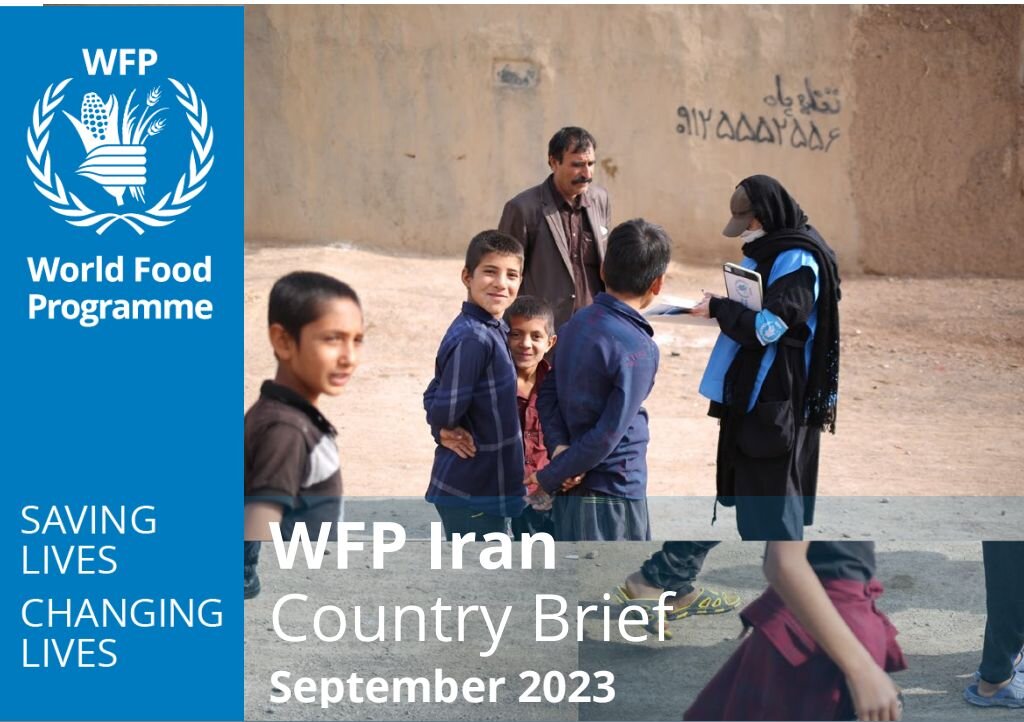WFP releases September report on Iran

TEHRAN - The World Food Program (WFP) has released a report, expounding on activities in Iran over the month of September.
In September, WFP food assistance reached 32,668 beneficiaries, which includes Afghan and Iraqi refugees.
Of this 28% were women, 29% were men, 21% were girls, and 22% were boys. Refugees are assisted with a staple food basket which includes fortified wheat flour (12 kg per person per month) and vegetable oil (900 ml per person per month).
In addition to this in-kind food assistance, WFP provides cash assistance to 7,327 Afghan and Iraqi refugee households each month.
In September, households headed by refugee men received Iranian Rials (IRR) 2 million (US$ 5.3, according to the UN Operational Rate) per person.
Households headed by refugee women received a slightly higher monthly cash allocation, amounting to IRR 2.5 million (US$ 6.7) per person due to limited access to working opportunities, leading to higher food insecurity.
To maintain beneficiaries’ purchasing power amid deteriorating economic conditions, since June, WFP increased its cash assistance to vulnerable refugee women and men facing serious risks over their food security and well-being.
The school feeding and cash incentive distribution is suspended for July, August, and September due to summer school break.
According to recommendations from the February 2022 WFP and UNHCR Joint Assessment Mission, refugees with disabilities were granted by WFP a monthly cash top-up of IRR 1 million (US$ 2.6) in addition to their regular entitlement.
WFP implemented a pilot initiative in two settlements, Shahid Naseri of Markazi and Mohajerin of Semnan provinces, providing refugees with disabilities a monthly cash top-up of IRR 1 million (US$ 2.6) on top of their regular entitlement. In August, the program successfully reached 93 beneficiaries out of the planned 100.
Meanwhile, according to WFP’s 2022 report on Iran based on Interim Country Strategic Plan (2018-2023), Iran was one of the most affected countries by the COVID-19 pandemic.
While the pandemic gradually abated and restrictions were lifted by mid-2022, the country continued to struggle with its severe negative socio-economic impacts, the report said.
In mid-2022, the Government decided to cut subsidies from staple food items. As a result, the prices of meat and poultry, dairy products and cooking oil increased fourfold overnight.
Inflation and increased prices of basic food commodities combined with local currency devaluation and reduced job opportunities due to a stagnating economy have significantly reduced the purchasing power of vulnerable groups including refugees.
Against this backdrop and despite the tightening of trade restrictions and external barriers, WFP Iran succeeded in meeting its plan of supporting over 32,000 refugees living inside 20 settlements with unconditional food assistance through a combination of locally procured in-kind food and cash-based transfers.
MT/MG
Leave a Comment